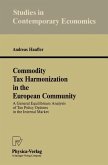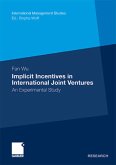As an integral part of the globalization process, international joint venture (IJV) has become a very popular and important mode for accessing foreign markets. One of the most interesting and important issue in the analysis of JVs is how profits are shared between the partners. Many existing papers use the bargaining approach. Unlike the normal methodology in the existing literature, this book displays a non-bargaining three-stage model to examine this question in three different markets. The result shows that with an optimal tax approach, no matter in a single market, or in an integrated market, or in a segmented market, the domestic partner always seizes more than 50% of profit share even without any bargain power. This book should provide an alternative view for policy makers in developing countries to attract and control foreign investments, and for scholars and advanced students who research on the field of foreign direct investment and international joint venture.








